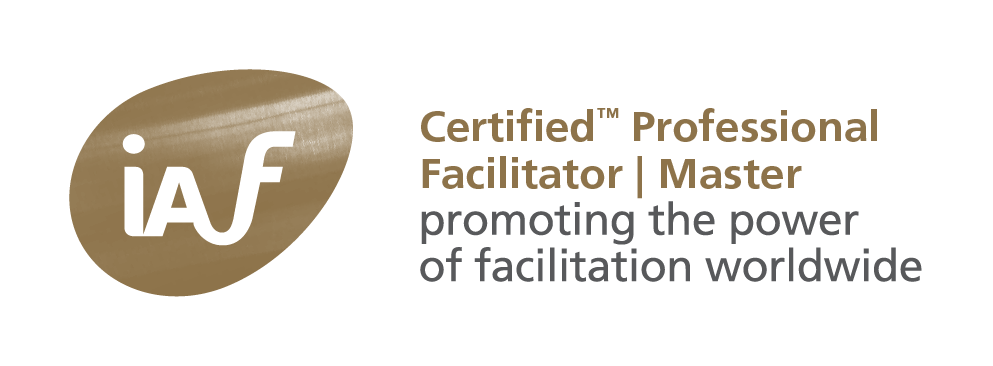I’ve been asked (as a Provocation for Inquiry): with my desire to explore paradoxes and inquiry, would appreciate your assistance in framing the following as a paradox:
Hierarchical systems are built from lower levels but do not serve them
I think we all know the problem: from a small team setting to major democracies: how to deal with the flow of power from the powerless to the powerful? And vice versa. We hear usually in democracies framed as “the gap” between public and politicians.
Listen to what Spinoza wrote, “The objective (or task) of the state (power, hierarchy) is freedom“. Use power to liberate others! However, this cannot be to liberate ourselves from the state, the liberator?
Didn’t you notice how almost every liberator becomes an oppressor? Let’s pay a visit to the paradoxes of (inter-group) expressing and (intra-group) power.
Don’t say not
You used “not”. Every sentence with a “not” in it, refers to paradoxical situation. Because you can say “not” and you can not do “not“. I used and intentionally, because it’s an inclusive “or” and with using “but” I could involuntarily induce again a “not“.
Off course you can say you did what you said, even when you didn’t. As I said, paradoxes of expressing.
So “hierarchy” will say that “they” (it’s actually a group of human beings) have been build by “lower levels” (also human beings) to serve them and use this as their argument, whenever “lower levels” say “hierarchy” doesn’t serve them. And its true, because hierarchy cannot exist without lower levels. They “invent” each other.
The paradoxes of “expressing“, as described by Smith and Berg: Authority, Creativity, Dependence and Courage.
Using”provoking” in the subject line: this – I think – might be a solution you’re looking for: thought provoking provokes authority. That’s why they tend to suppress (freedom of) thoughts.
Who authorizes authorities?
Authority derives authority from authorizing processes (“building by lower levels”), by “members” authorizing authority. Off course, this raises an internal question: who’s higher? Authority or the Authorizing Processing People.
Authority can “fix” this by
- claiming that its authority has been derived from “higher powers”;
- by saying that the voting (remember: it’s the paradox of expression) process has given them the power (“will of the people”, see Brexit or any dictatorship … );
- voting has been rigged (depending on winning or loosing);
- by referring to external hierarchies, which have to be defeated, before Authority can serve its “lower levels” again;
- …. other creative (paradoxical) options …. ;
- using power (poor solution on the long run).
Authority – by its power – can also use power to frame (paradoxes of Perceiving: Trusting, among others) a situation as “serving” the people. Usually together while indicting (!) to protect them. Offer safety – off course, always by guards. Or – very powerful – to promise progressing to a future state in the past (“Make Authority great again”, “Take back Control”, – this expresses the paradox in three words! – …)
Quis custodiet ipsos custodes? Who will guard those guards? The recurring regression / progression in any organized organization – vicious cycles – suggestes there are paradoxes at work.
You see: paradoxes are like the turtles all the way down. I like this paraphrase from Lewis Carroll:
Red Queen (! authority): “You cannot try to deny it, even if you do it with both hands”
Alice: “I don’t deny with my hands”
Red Queen: “I didn’t say you did, I said you couldn’t if you tried”.
How to facilitate (catalyse) this better?
Grammars of engagement
In my forth coming publications, I will give more detailed options.
You cannot beat paradoxes. You need strength dealing with the forces of power.
Let members of a group release themself – liberating – from tensions, by reclaiming power that was splitted off in managing the apparent contradictions from empowering themselves. In other words, authorize authorizing their authorisations. A more common name used to be “stewardship” of “serving leadership”.
Solving “power struggles” does not mean that we will never again (good) experience power struggles (bad). We’re slowly learning to live with the repeating exploration of these paradoxes.
Taking in slowly
Start before the beginning: with an intake with a powerful client. On visiting – hard nowadays – a client, look for clues, like a crime scene. Where are signs of power(lessness)? What’s on the bulletin board? What writings on the wall?
Then you go slow, reframe what you’ve been “ordered” to deliver (usually phrased as a question, a request, or – even worse- a tender) into a request. Ask to meet the “problem owner”, thee one who needs to improve the current situations, lacking the power from the hierarchy.
Create space to manoeuvrer. Important to enable (future) participants to authorize you to support them. This is actually the double bind of most managers and authorities: requiring voluntary actions from the people they think they’re managing.
Check your assumptions, assuming they’re wrong.
Analysing perspectives
“Analyse” the situation using the game board presented by McWhinney. What will be you main “game”?
Designing meeting
Develop a theme, a story-line with the theme. Use mythical, symbolical, metaphorical, imaginative images. Paradox of creativity.
Meeting (your) design
As a facilitator / catalyst use “space” and “attitude”. Always come in time, slightly overdressed with a twist – like an outspoken tie (I’ve got several; I own a blue-grey suit with a vest; for women it’s easier). Take in at the beginning a power position, stating what you’ve been asked to do. And ask the client to introduce you.
Move – as soon as possible – towards the anxieties and fears of the participants associated with the issue at hand. (I once just asked, while sitting down with them: “what’s on your mind?“) You can safely assume, that these are NOT the same fears as the client has expressed. And also, they will be different for different participants.
After these have been stated, look for the ones this group is able to handle. Where do we have authority?
Go into small groups (max 5) as soon as possible. Ask them to appoint a “speaker” before they start their conversations.
“Speaker” (or “secretary”) avoids discussions on leadership, induces participants to “speak up” (express), while the speaker needs to listen. Technically, you’re framing the group in the paradox of “expressing”.
Meeting the point
When your designed workshop falls short, confusion, resistance, … : welcome, you’re at the point of the meeting! Listen carefully to the emerging question(s). Use the phrasing of the participants themselves (they’re framing it like this), for instance, for money the could use: ‘budget’, ‘costs’, ‘dough’, ‘expenses’, ‘bread’, ‘pennies’, ….
Look for their meaning behind the metaphor-in-use, the images participants use (these might differ from the metaphor-espoused, what’s being said). Use “clean questioning”, ask without least imposing your framing. You could intervene by “twisting” meaning.
Halting at the end
Let participants phrase actions they’re going to do tomorrow and what they can do if they don’t execute these.
Invite participants to reflect on their learning from the meeting.





